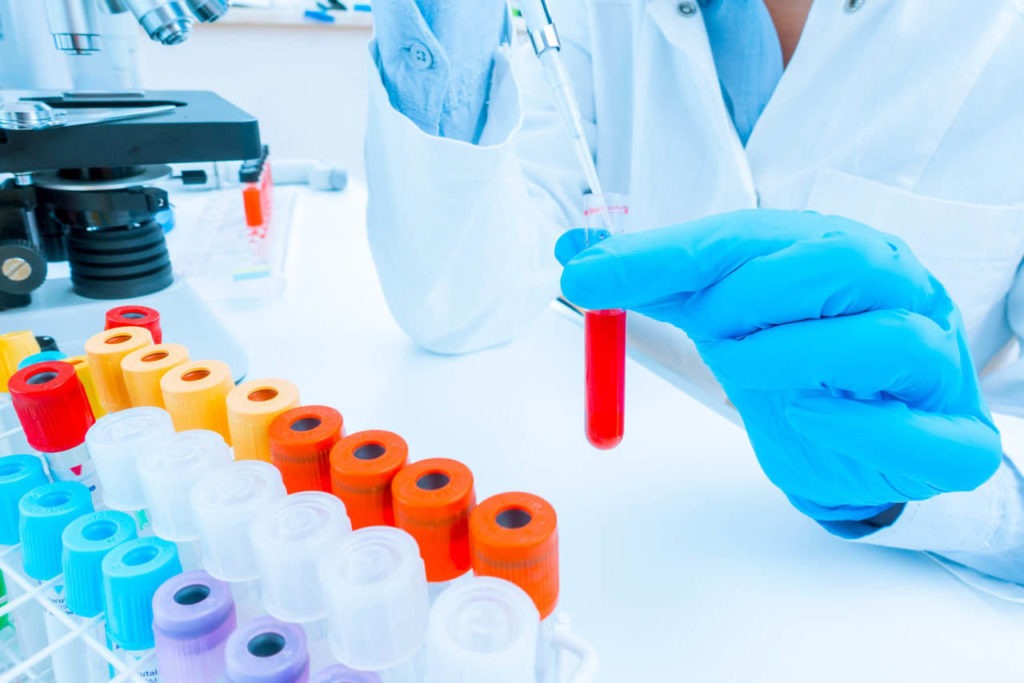With the rapid development of the field of genomics, scientists are beginning to know increasingly more about genetic diseases and the impact of our DNA. The pioneers and leaders of reproductive genetic testing, Reprogenetics℠, Recombine℠, and Genesis Genetics℠, have joined forces as CooperGenomics℠ to provide genetic tests and services for every step of the fertility journey.
Why do I need genetic carrier screening?
If you are planning a pregnancy, the health of your future child is definitely of utmost importance to you. Fortunately, there is a way to learn about your future child’s health before they are even born or before you even get pregnant. It is done using CarrierMap℠ genetic carrier screening, which is also used by Procrear Assisted Human Reproduction Center and other IVF clinics in Spain to screen egg donors.
By analysing your DNA sample, genetic carrier screens establish if you carry any genetic diseases. Carriers usually show no symptoms of the genetic condition they carry but might be exposed to a higher risk of giving birth to a baby impacted by that condition. Thus, carrier screening can be a valuable tool during the family planning process, providing important information about risk, even before pregnancy.
Knowing that we can now detect gene anomalies before pregnancy empowers families and has revolutionized personalized medicine. Thanks to this testing, women undergoing IVF with donor eggs can as well reduce the probability of giving birth to offspring affected by genetic anomalies.
The CarrierMap genetic carrier screen is one of the most comprehensive screens available. It has been developed to determine the risk of passing on more than 3 hundred genetic diseases and is appropriate for men and women of any ethnic background. CarrierMap tests a blood sample to help find out which changes, or variants, appear in DNA and determine if there is an increased risk of having offspring with an inherited genetic disorder such as Fabry’s disease, cystic fibrosis or Wiskott-Aldrich syndrome, etc.
Who is CarrierMap testing for?
This type of screening is appropriate for women and men who are planning a family or early in pregnancy, as well as egg donors. Doctors recommend carrier screening even to those fertility patients and donors who have not had any medical history of genetic diseases running in their family. Why? What is interesting and surprising is that even 80% of babies born with a genetic disease don’t have any recorded family history of that specific condition. Also, egg banks like Procrear Egg Bank perform carrier screening tests on all oocyte donors and assess the results before even accepting them into the donor program. This reduces, but doesn’t eliminate, the risk of giving birth to a baby affected with a genetic disease included on the screen.
EggDonationFriends have asked Procrear’s representative to give us some more insight about CarrierMap testing they use at their fertility clinic.
EDF: Do you test egg donors and egg recipients with CarrierMap?
Procrear: Every living human being normally carries multiple genetic mutations and characteristics which are the reasons for our genetic variability. However, many of us carry genetic mutations which, when passed on to our children, may cause serious genetic diseases. Nowadays, thanks to modern advanced science, genomics, we can now screen patients and donors for those mutations and detect those genes. This is especially important for those patients of our clinic who want to undergo fertility treatment with donor eggs.
Such screening is also an important part of the process of donor selection at Procrear. It gives our patients more understanding about their genetic makeup. Procrear specialists perform this test on all candidates for donors and we can determine more than 300 mutations of 34 main genetic diseases. We perform CarrierMap on all donors, in order to detect and exclude serious genetic diseases. Our selection process is very meticulous – Procrear does not accept donors with these mutations. In fact, we accept only one-third of the donor candidates. With the help of Carrier Map/Recombine, patients can also decide to have genetic matching done with their partner’s sperm sample or with a sperm donor sample. This is to make sure to exclude the unwanted mutations.
EDF: Why have you decided to use this solution? What does it give to the patients? Why do you recommend it?
Procrear: Our fertility clinic aims to provide the best selection of healthy donors to all patients. Thanks to the use of CarrierMap such careful selection is made possible, and in combination with Procrear’s modern and advanced technology, can help us achieve best results in fertility treatments we perform. Carrier screening gives Procrear’s patients the possibility to have a highly specialized genetic evaluation of their genetic makeup and make informed decisions about their future fertility treatment. This is one of the reasons international patients are attracted to our clinic.
How does carrier screening work?
The average person carries 3 -5 disease-causing gene changes, known as variants. If both parents carry the same recessive genetic condition, there’s a 25% risk of conceiving offspring that is affected by this condition.
Here is where the CarrierMap screen comes in. The test looks for alterations in female and male genes which, combined, may increase the risk of conceiving a baby with a genetic condition which may seriously impact their development. Some of the genetic diseases which can be detected by CarrierMap are:
- cystic fibrosis
- SCD
- Tay-Sachs disease
- Copper transport disorders
- nonsyndromic hearing loss and deafness: GJB2 related
- and many more.
How can I benefit from CarrierMap screen?
If you’re planning IVF treatment with own oocytes, learning as much as you can about your genes will make you more aware of the possible options. If you’re due for an IVF cycle with donor eggs, it’s important to ask if the donor underwent carrier screening, like CarrierMap. CarrierMap can show if you (or your donor) are a carrier or a non-carrier, telling you about your risk of passing on a genetic anomaly. It’s crucial to remember that carriers typically don’t show any symptoms of the genetic disease they carry. That’s why genetic screening like this is so important for every woman and man trying to start a family. The benefits of these tests may include:
- your own comfort – the feeling that you’ve done all you could to find out if your future baby can be healthy may bring you comfort and peace,
- knowing your options – if you’re considering fertility treatment like IVF, knowing the results of the genetic screen can be extremely helpful to your fertility doctor. This might affect the fertility treatment type you will have. If you happen to have some genetic issues, multiple IUIs may not be the best solution for you. IVF may turn out to be the best approach. Your embryos can still be tested before transfer.
- resting assured that you don’t carry any serious genetic mutation – if the carrier screen confirms that, you will be able to plan your fertility journey better. On the other hand, if you both carry the same genetic mutation, you can discuss alternative fertility routes with your fertility specialist.
- knowledge is empowering – knowing all your options in advance may be helpful to understand what to expect in the future and help you make well-informed decisions about the future well-being of your loved ones.
The greatest benefit of genetic testing is knowing the potential risk and being able to make informed decisions about your fertility journey.
If you are thinking about the health of your future child and wish to explore genetic carrier screening, visit CooperGenomics website.
Table of Contents




